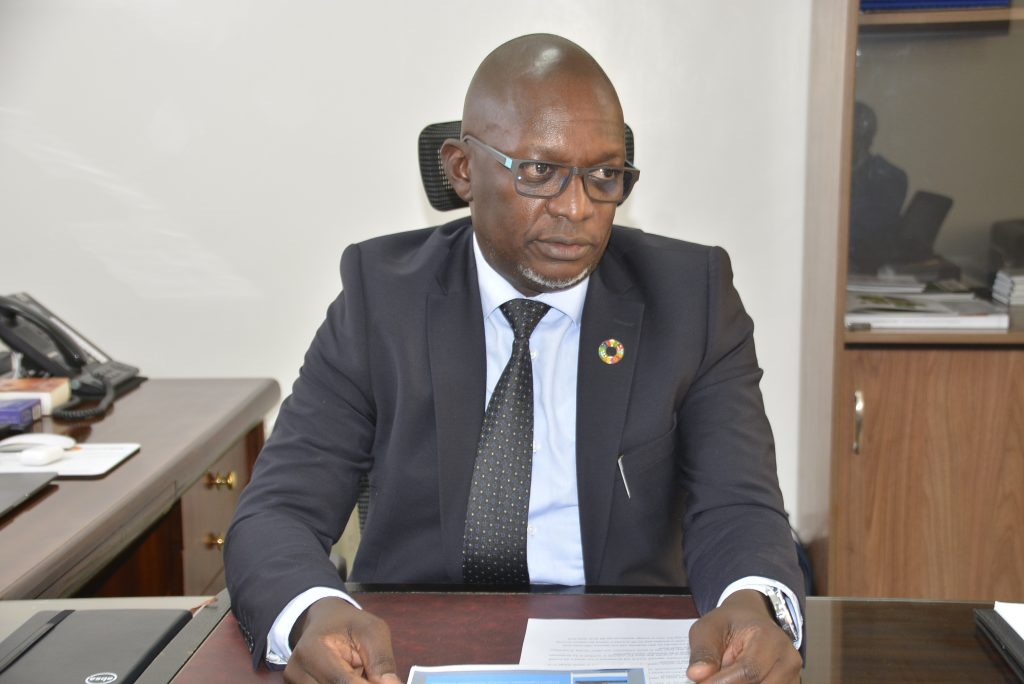
Martin Ochien’g, Group Managing Director,Sasini Plc
- Navigating global markets and challenges in its 72nd Year.A Conversation with Martin Ochien’g, Group Managing Director, as he leads the company into a thriving future of diversification and strategic partnerships.
In its 72nd year of operation, Sasini PLC, a publicly listed agricultural firm, has established itself as a key player in the East African agricultural space.
Specializing in the production and sale of tea, coffee, macadamia, and recently, avocados, the company plays a pivotal role in supporting local farmers, creating job opportunities, and contributing significantly to the country’s revenue through export trade.
To delve deeper into the expansive role Sasini plays in the nation, Business Quest engaged in a conversation with Martin Ochien’g, the Group Managing Director, covering key areas such as the company’s historical background, international market presence, and strategic approaches to navigate challenges.
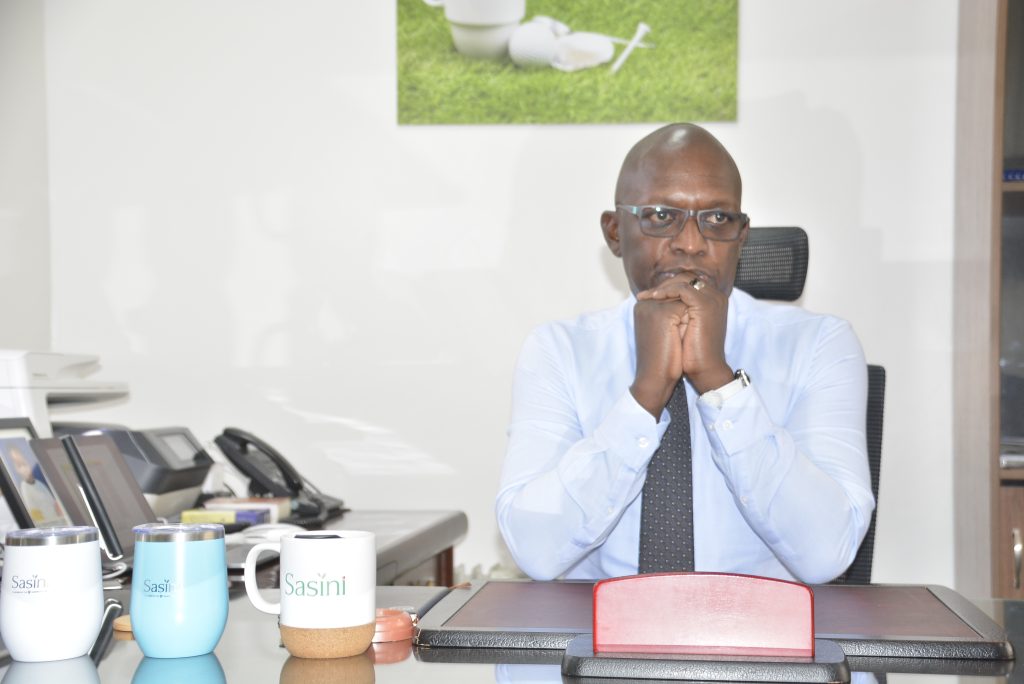
Founded in 1952, Sasini has evolved into East Africa’s largest agricultural business, engaging in the entire value chain from growing and processing to manufacturing, packaging, marketing, and exporting of its products.
With a reach extending as far as Japan, South Korea, Pakistan, and various Asian nations, Sasini has successfully established itself in international markets, including the UK, Germany, France, Spain, Canada, and the North American markets of the USA and Canada.
Highlighting their role as a predominantly export-oriented business, Ochien’g revealed the significant market share held by Pakistan, constituting 40% of their tea exports. Meanwhile, the U.S. is a major destination for 90% of their macadamia kernel nuts and 40% of their coffee.
Notably, the Netherlands receives 80% of Sasini’s avocado exports, with the Pakistani market standing out as the most substantial in terms of overall value.
In discussing the challenges faced by the company, Ochien’g addressed the impact of global events on their operations. Over the past few years, Sasini has weathered forces such as the Covid-19 pandemic, geopolitical tensions in Europe (Russia-Ukraine conflict), and the ongoing Middle East issue involving Israel and Palestine.
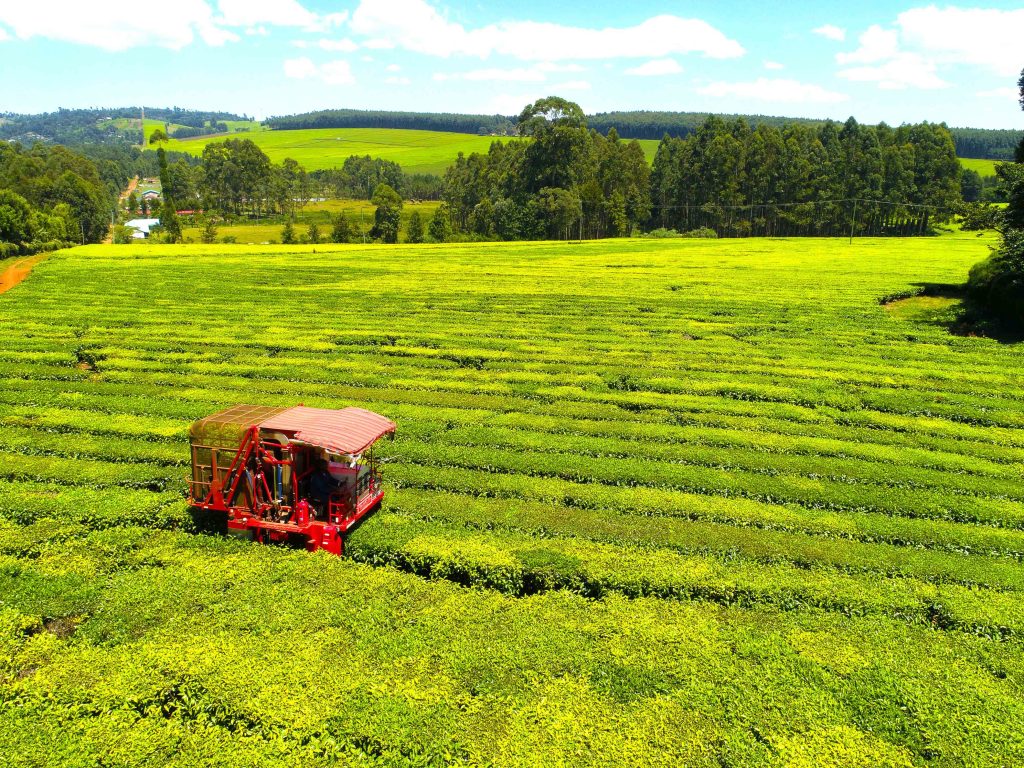
“These seemingly distant events have tangible effects on the company’s logistics, particularly the movement of goods through the Suez Canal,” he notes.
The most recent disruption caused by the Israeli-Palestinian conflict has forced Sasini to reroute its goods through the Cape of Good Hope in South Africa, significantly increasing costs.
Despite these challenges, Ochien’g emphasized the company’s resilience and adaptability, honed over years of navigating global business complexities.
“Rather than viewing challenges as excuses, Sasini remains committed to finding systematic solutions and staying versatile in the face of market shifts,”
Key performance indicators;
At the core of Sasini’s remarkable growth and sustained profitability lie strategic principles that steer the company forward. Anchored by a robust strategic direction, the company adheres to six fundamental principles outlined in its strategic plan.
“We conduct regular reviews ensure ongoing relevance and efficacy, ensuring these pillars consistently deliver the desired outcomes. These principles are organized into three primary categories. The first focuses on propelling growth across all products, actively pursuing new markets, clients, and growth areas. Diversification within the crop portfolio remains a key strategy, ensuring a continual expansion of revenue and profit streams” Ochien’g indicates.
The second category, he notes, revolves around cost containment and operational efficiency. Sasini is committed to optimizing processes, minimizing costs, and enhancing overall efficiency to maintain a competitive edge in the market.
The third category underscores the significance of talent within the organization. Sasini recognizes the integral role played by its workforce, extending beyond the organization to encompass all value chains, both downstream and upstream.
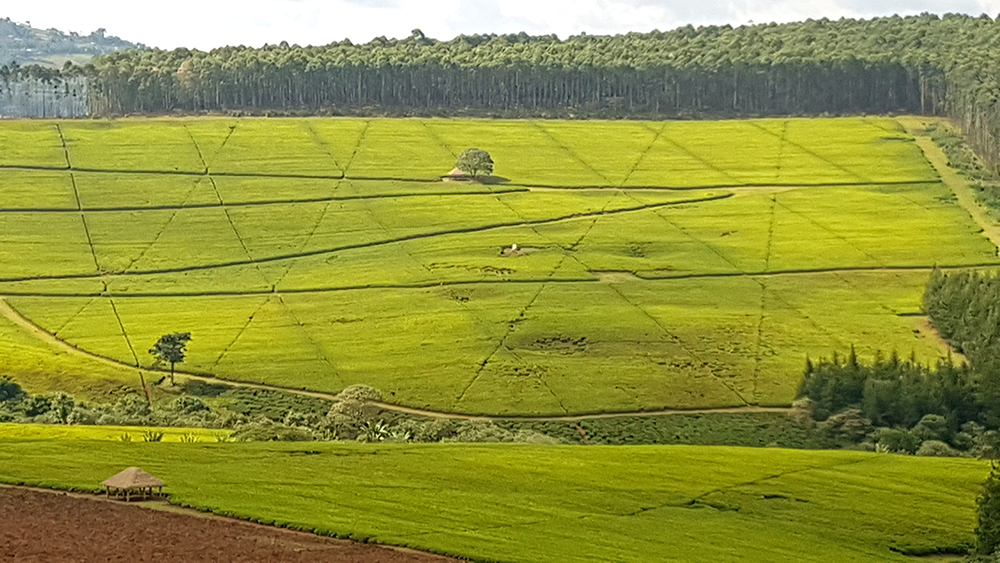
Competition;
What sets Sasini apart in the agricultural landscape is its unwavering inward focus, particularly on its clients and their specific needs.
“We are also focused on what we do in terms of the crops that we grow and the produce that we then put on the table for our customers,” Ochien’g says.
The company’s decision-making process is largely driven by understanding and fulfilling the requirements of its customers. This client-centric approach is not merely a business strategy; it’s a fundamental philosophy that guides Sasini in tailoring its offerings to meet and exceed customer expectations.
Sasini’s distinctive approach revolves around a blend of client-centricity, product excellence, and a steadfast commitment to its own strategic path.
“We are also focused on what we do in terms of the crops that we grow and the produce that we then put on the table for our customers. It’s almost irrelevant to us what other players are doing because that’s other people’s business and it is important to look at it but it’s not entirely what drives our decisions,”
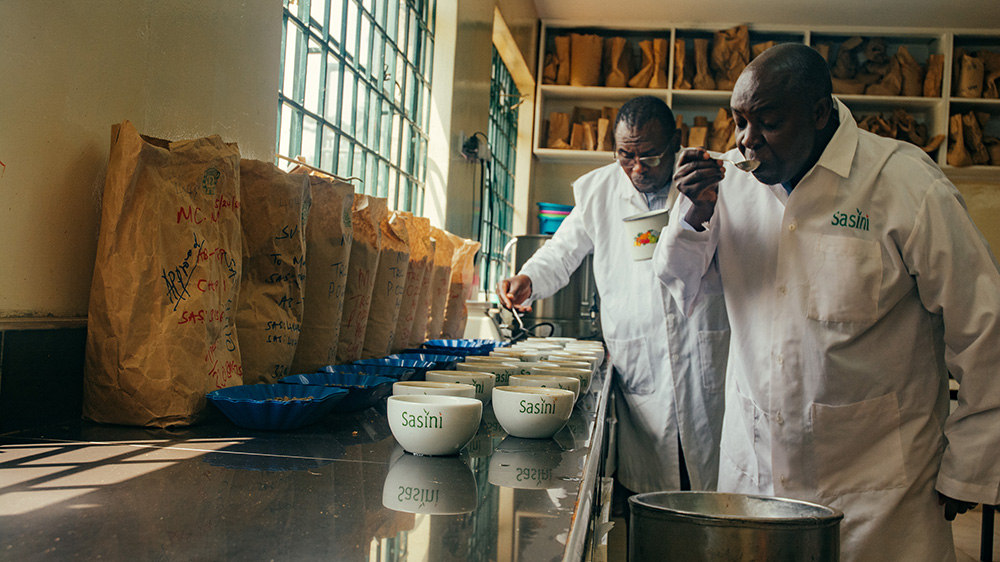
Innovation;
Ochien’g emphasized that innovation, particularly for enhancing efficiency, stands out as a key strategic pillar for Sasini.
In the tea business, the company underwent a significant transformation five years ago by transitioning from the traditional practice of hand plucking, which had been in place for seven decades, to a 100% machine plucking approach.
This strategic shift was motivated by efficiency concerns and the high costs associated with hand plucking. The results have been impressive, allowing Sasini to produce tea more quickly and with improved quality, ultimately enabling them to transfer these benefits to their customers.
In addition to the innovation in tea plucking, Ochien’g highlighted another technological advancement in fertilizer application within their tea business.
Partnering with another entity, they explored the use of drones for fertilizer application and found it to be a cheaper, more efficient, and a targeted alternative compared to the traditional broadcasting methodology.
This innovation, implemented two years ago, has significantly reduced the time required for fertilizer application across all Sasini estates, from two and a half months to just 11 days.
Ochien’g further elaborated on Sasini’s commitment to innovation, citing the company’s possession of the most modern macadamia processing plant in East Africa. This commitment extends to their avocado pack houses, where Sasini is consistently exploring better ways to pack and preserve products.
These continuous efforts underscore Sasini’s dedication to staying at the forefront of innovation, ensuring operational excellence, and delivering superior products to their customers.
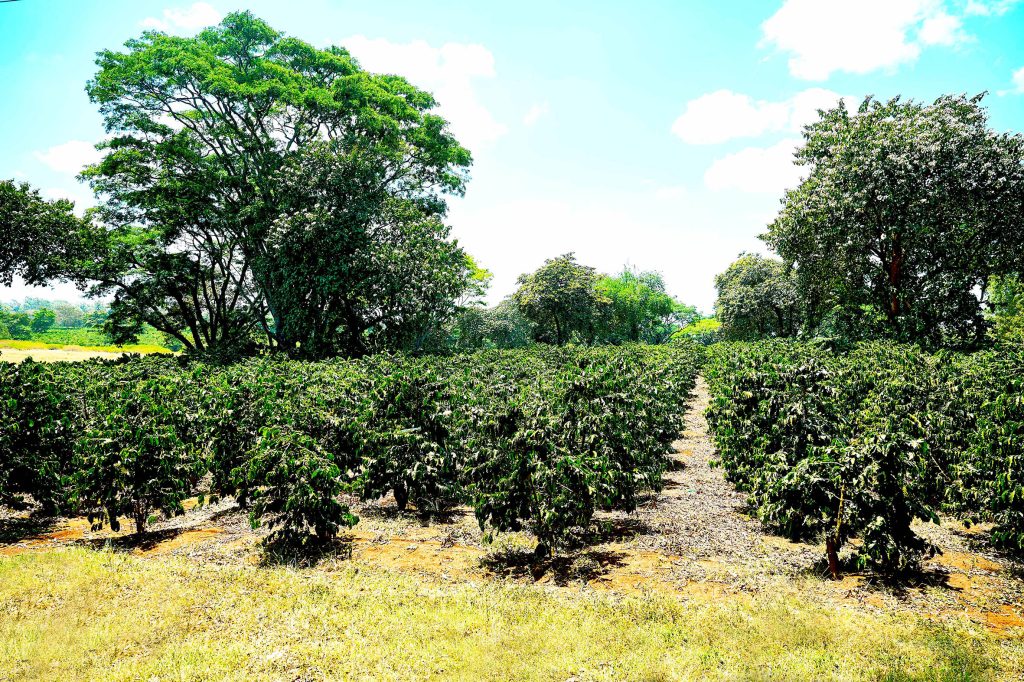
Path towards sustainability
One key driving force that has been guiding the firm towards sustainability goals is the zeal to be a good corporate citizen.
Ochieng says that there are four buckets where they focus on; “respect for human rights and making sure that everybody working in our value chain is working within the norms of the global human rights and norms as laid down by the United Nations”.
“Second is the endeavor to have good labor practices and thirdly, the mandate to generally protect the environment and making sure that we protect land since our business is agricultural.Lastly is to do our business in a corrupt free environment. To drive the notion of anti-corruption because that’s one of the biggest derailers of business globally,” he adds.

What’s the firm’s view on the looming carbon trade?
Emphasizing the importance of responsible business management and environmental stewardship, Ochieng’ highlighted the significant role their agricultural operations play in combating CO2 emissions.
“Our business is about ground cover, with tea, coffee, macadamia, and avocado plantations, along with over two million trees forming forests within our plantations.”
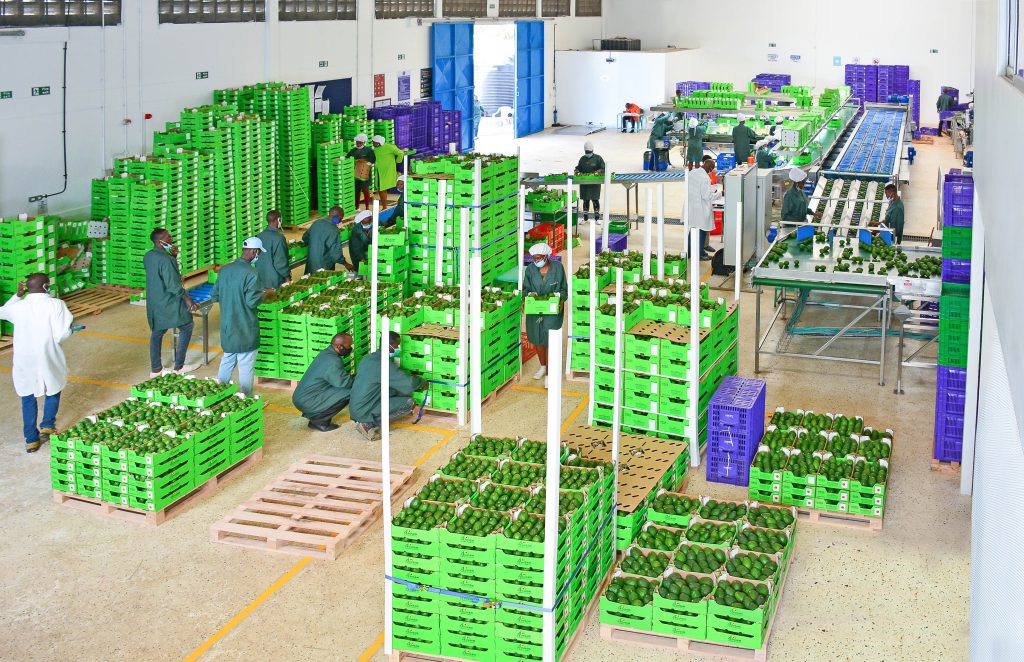
The firm underscores the pivotal role these crops play in absorbing CO2, serving as a crucial mitigation measure against the greenhouse gas effect on nature.
“We believe the contribution we are making in the environment in terms of absorption of CO2 is enormous,”
While acknowledging the potential for selling carbon credits, the firm clarified that their primary objective in cultivating trees is not to promote carbon trade.
“Currently, we are not engaging in selling carbon credits, but if we have enough credits that we can sell and benefit, why not?” He remarked.
R& D Strategy
Ochieng’ offered a glimpse into Sasini’s multifaceted research and development (R&D) strategy, revealing a unique blend of internal labs and external partnerships across its diverse business segments.
“Our R&D efforts leverage two distinct approaches. For our core tea and coffee operations, we cultivate innovation within our dedicated R&D centers, fostering expertise and driving progress from the ground up.”
In contrast, for its avocado and macadamia businesses, Sasini strategically leverages external knowledge and resources. “We partner with leading R&D centers around the world, sometimes even venturing beyond national borders to tap into the strengths of facilities in South Africa and Israel,” Ochieng’ elaborated.
This dynamic approach allows Sasini to tailor its R&D investments to the specific needs and market dynamics of each product category.
Sustainability Initiatives
Sasini isn’t just focused on brewing success, it’s also committed to nurturing the communities where it operates. Through its sustainability initiatives, aligned with the UN Global Compact and its Sustainable Development Goals (SDGs), Sasini goes beyond corporate social responsibility, creating tangible positive impact.
“The UN Global Compact is a UN Agency that seeks to assist corporates to conduct business responsibly. It came came up with the 17 SDGs, and Sasini has chosen to focus on nine that drive our sustainability mantra based around human rights, labor, environment, and anti-corruption,” Ochieng explains.The initiatives are fast tracked through;
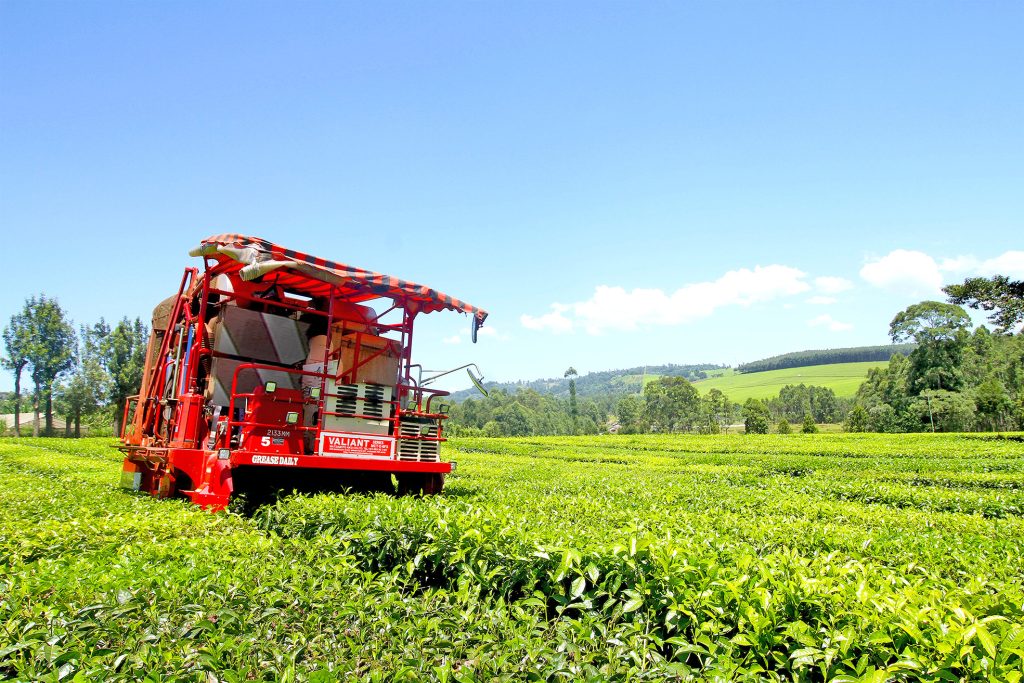
We ensure the communities in which we work have available water for their personal use. This is because some of them are in the most rural parts of the country, grappling with water access.
2) Living wage provision
We also make sure that people who work for us are paid enough for them to live on and not just a minimum wage because that’s a legal requirement. We are also moving away from the minimum wage discussion to the living wage discussion and look forward to implementing this over the next several years.
3) Push for gender equity
We are often on the lookout to implement measures and strategies that will address the question of how we balance our communities and our people in our business to attain gender parity. This is because agriculture is very male dominated. It’s very unfair to the female folk, and we have to be deliberate in driving that change.
4) Climate actions
We are also keen on ensuring we adhere to the responsible use of renewable energy, what we do with the reduction of harmful gasses to the environment and what we do with the responsible absorption of harmful gasses to the environment as well.
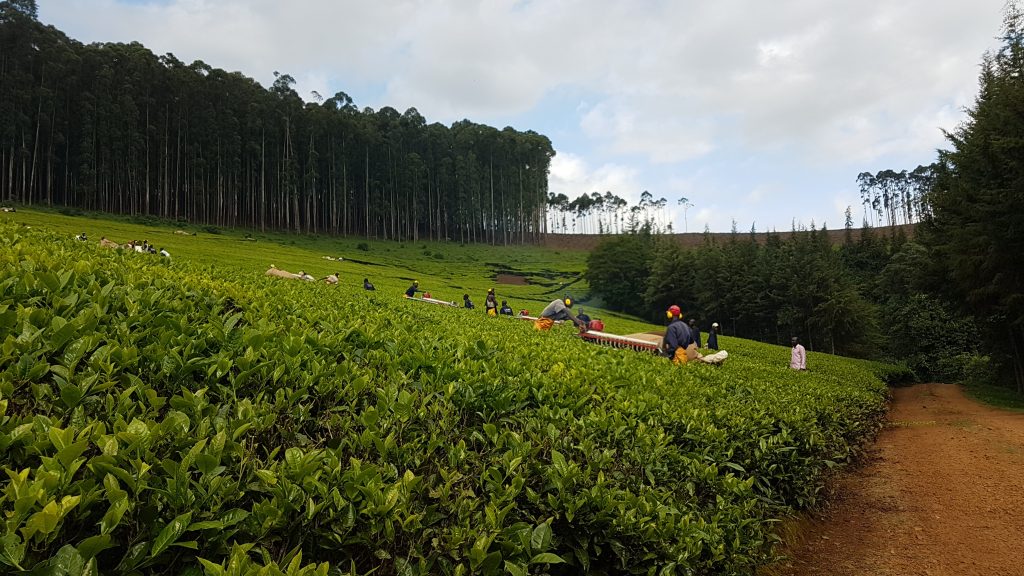
- Partnerships
We are committed to working with like-minded organisations to pursue our goals for maximum scale and impact.
Ochieng’ embraces the mantra of co-leadership, he recognizes the wealth of knowledge within the organization and understanding that collective expertise surpasses individual capabilities.
He leads with an open and collaborative style, emphasizing team achievement over individual recognition.
The CEO works with a team of co-leaders who have been strategically assigned according to their specific areas of expertise. Ochieng’s role is to empower and support these co-leaders, ensuring that the organization benefits from their diverse skills.
Looking toward the future, Ochieng’ envisions Sasini’s success through a strategic and collaborative approach.
“The organization’s strategy is shaped collaboratively by the leadership team, the board, and employees, all while being attuned to the needs of clients and the dynamics of the market,” he says.
Sasini is currently on a strategic platform focused on growth through diversification. Ochien’g is leading the charge to explore new crops, aiming to create additional revenue streams and drive bottom-line success.
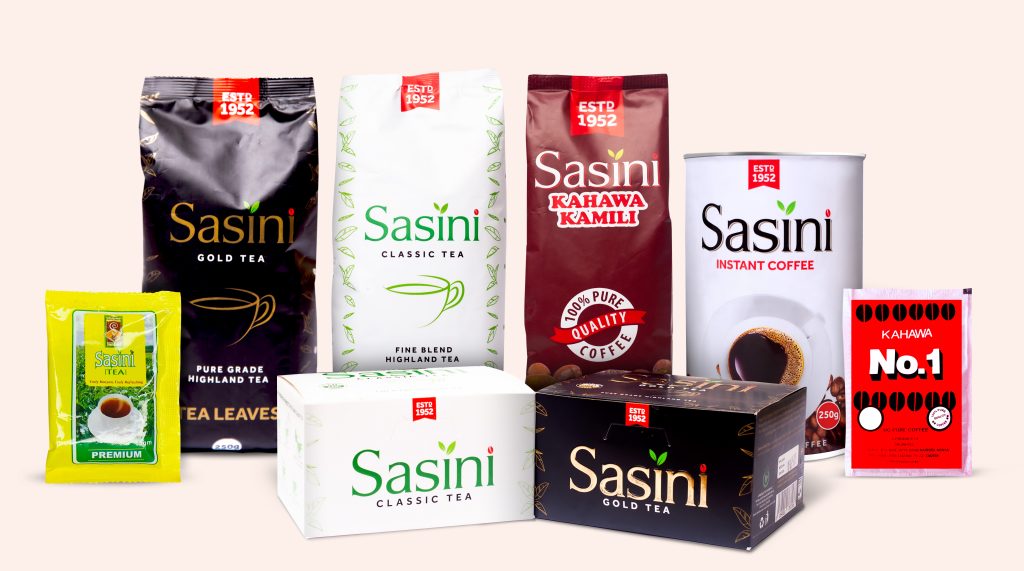
The organization also seeks partnerships with other companies, considering avenues like mergers, acquisitions, and joint ventures to expand offerings and enhance profitability.
On the context of the firm’s expansion, Sasini, under Ochieng’s guidance, is contemplating sourcing produce from regions beyond Kenya. This forward-thinking approach aims to tap into opportunities in the East African region and beyond.
“We are currently sourcing all our produce and growing it in Kenya, processing it here and sending it to the world, thus we are looking to tap into the opportunities that exist in the East African region.”
His vision for the organization encompasses growth, diversification, and strategic partnerships, all aligned with the evolving needs of the market, clients, and the pursuit of excellence within the agricultural landscape.









